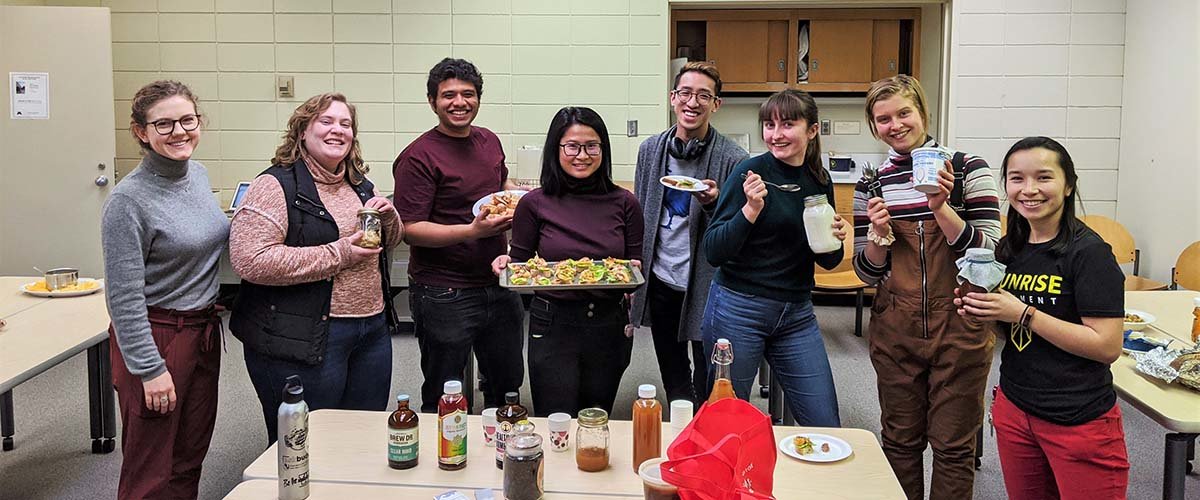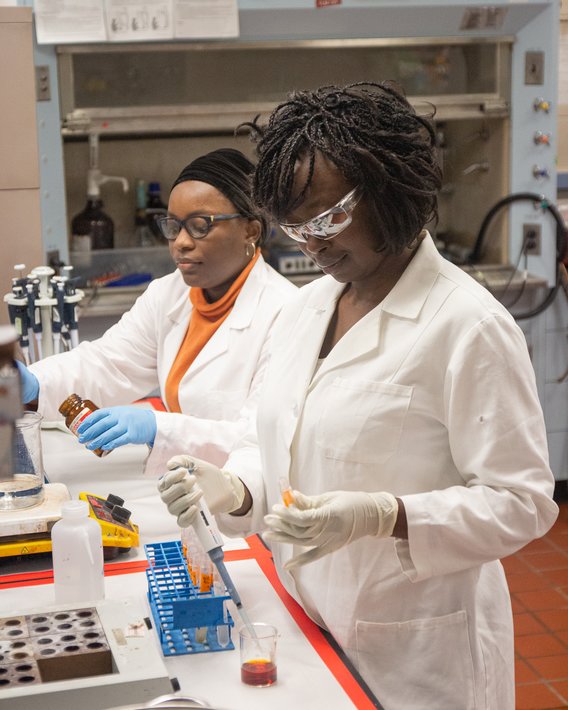
Connectivity, community, culture

The CFANS Department of Food Science and Nutrition explores the interdisciplinary nature of food systems, health and society
“All the major social issues come together in the field of food science and nutrition.”
This poignant statement by Job Ubbink, head of the Department of Food Science and Nutrition (FScN) at the University of Minnesota’s College of Food, Agricultural and Natural Resources (CFANS), was at the heart of many lively discussions around the future for food systems, health and society in 2050. During the department’s showcase event in October 2020, participants from a great variety of backgrounds and experiences came together to talk in depth about food and the critical ways it nourishes our bodies while strengthening communities.
From seeds planted in fields to meals shared around tables, everything we eat is part of an interconnected system. In her keynote remarks, University President Joan Gabel talked about developing our food sources in healthy, nutritious ways that are respectful of the environment, not just from a sustainability and environmentalism point of view, but also “in terms of who we share the environment with and their ancient wisdom.” She noted that health, sustainability and agri-food are active and distinctive areas at the U of M — in service to and inspired by our state at world-class levels.
Faculty and students presented research in key food science and nutrition areas, woven throughout with stories of food in the context of culture and community. “Food is a way of exchanging knowledge; it’s at the base of relationships,” said Elder Atum Azzahir, chief executive officer of the Cultural Wellness Center in Minneapolis. Azzahir has worked with FScN students who are researching ancient grains and bringing them to entrepreneurs at the Minneapolis cultural and food hub Midtown Global Market, where chefs are incorporating the grains into their recipes and menus.
“These kinds of community-based experiences give students a sense of engagement, interaction...an opportunity to really learn to appreciate how to interact in a productive way across cultures that bring in very different systems of thought,” said Craig Hassel, FScN associate professor. “The students are learning to adapt culturally in a different context, and that’s a very powerful, transferable skill that we’re introducing within our FScN curriculum.”
For spring semester 2021, FScN introduced a new course titled “Food Customs and Culture,” a study of traditional and contemporary food cultures around the world with a focus on food customs and cultures in the U.S. According to Ubbink, one of the course’s instructors, students will have the opportunity to analyze customs and culture on diets of communities and societies around the world, and explore how many of these come together in creating the rich and diverse food experiences in the U.S. Designed to expose students to new ideas and perspectives around food and nutrition, the course carries the Global Perspectives liberal education requirement for UMN students.
“In this course, we look at how culture is based on worldview, values and experiences, and realize that the culture of others is similarly shaped by diverse influences,” said Ubbink. “We are learning about each other’s food traditions and family stories, as well as discovering things about our own diets and cultural perspectives.”
With the vision of innovating together to improve health through food, FScN is a place to come together to look at issues in the food system from diet and health, to food development and creation, to food security and sustainability, all the way to how food and food habits support communities and their cultures. “FScN is truly an interface where scholars, students and stakeholders are interacting around the central themes that are related to health, community, sustainability and food,” said Ubbink.
This interconnectedness is working throughout CFANS and the University. For example, the Plant Protein Innovation Center (PPIC), is a first-of-its-kind interdisciplinary research center dedicated to studying plant and alternative proteins for applications in the next generation of foods. The Forever Green Initiative — a team of experts in genomics, breeding, agronomics and commercialization — is enhancing and developing new agricultural systems to improve natural resources and provide new economic opportunities for farmers and food makers.
During the showcase event, PPIC director Pam Ismail shared how she is inspired by students. “They are seeking research in relevant areas...they are aware of the environment and sustainable agriculture...they seek to study in this space,” she said. Consumers are asking for new sources of protein while the global population is growing; we need to get minds together to address this global, interdisciplinary need that involves farmers, industry, consumers and many other stakeholders, explained Ismail. “We need to educate our students to become our next scientists,” she said. “It’s a circle.”
It’s an interconnected circle indeed — bringing CFANS science, community and culture together with the goal of finding answers to the world’s grand challenges and solving tomorrow’s problems






